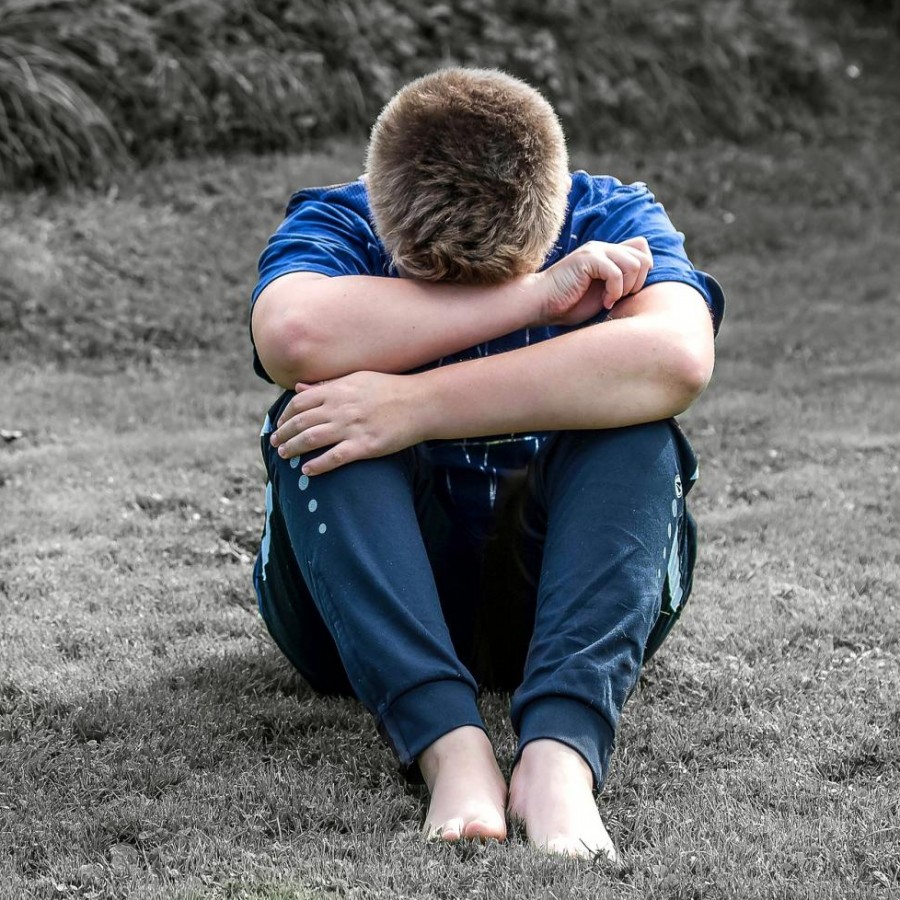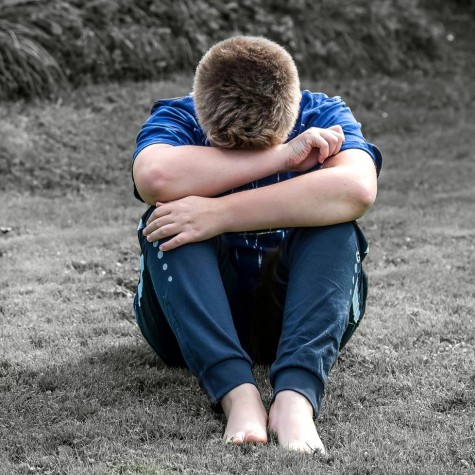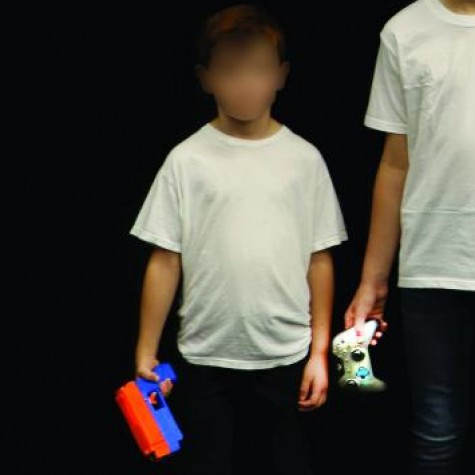A young boy is shown hiding his emotions.
Real men don’t cry
The social stereotype of perceiving the average male as “stronger” and “less emotionally responsive” than females has distinguished the sexes for ages. Young boys are taught that crying is meant only for girls and to “man up,” leaving them with a restraint to their emotions.
At PV, plenty of staff members are raising young children of their own. English teacher Jenni Levora, recognizes the parental influence on youth in relation to their expression of emotions. “Parents are worried about kids at school bullying their children because of their emotions and have tendencies to shield kids from that,” Levora said, “Kids are kids, and emotions are just a part of life. Especially for young kids, crying and showing emotion is a part of being young.”
Sara Russell, history teacher, is the mother of twin 10-year-old boys and encourages them to express their emotions. “As my dad grew older, he had to learn how to be emotional and that it is okay to be emotional as an adult because society taught him otherwise,” Russell expressed, “the idea that men are stronger and less emotional has been passed down, causing the idea to stay and affect the way young boys and girls are raised.”
In a 2018 NBC feature, sociologist Dr. Michael Kimmel notes that today, “you won’t find one kid who doesn’t have a friend of the opposite sex’”. NBC states the importance of having friendships with the opposite gender to not only to break down gender barriers, but also to allow open conversations about feelings so that mental health is not tarnished by the suppression of emotions.
If a male adolescent talks openly about his feelings with his “bros”, he will be seen as homosexual. NBC speculates that because of the world we live in, where homosexuality is not fully accepted, male adolescents withdraw their emotions in fear of being misinterpreted as gay.
Society perceives men as strong when their emotions are suppressed. This suppression causes further depletion of mental health, leading to a higher suicide rate.
According to USA Today’s research in 2013, “Boys and girls at age 9 are almost equally likely to commit suicide; by age 14, boys are twice as likely; by 19, four times; by 24, more than five times. The more a boy absorbs the male role and male hormones, the more he commits suicide”.
The suppression of emotion isn’t merely a social construct; it is affecting the next generation of kids and contributing to today’s problem with toxic masculinity and the slow depletion of mental health in young boys.
Real men don’t cry
The social stereotype of perceiving the average male as “stronger” and “less emotionally responsive” than females has distinguished the sexes for ages. Young boys are taught that crying is meant only for girls and to “man up,” leaving them with a restraint to their emotions.
At PV, plenty of staff members are raising young children of their own. English teacher Jenni Levora, recognizes the parental influence on youth in relation to their expression of emotions. “Parents are worried about kids at school bullying their children because of their emotions and have tendencies to shield kids from that,” Levora said, “Kids are kids, and emotions are just a part of life. Especially for young kids, crying and showing emotion is a part of being young.”
Sara Russell, history teacher, is the mother of twin 10-year-old boys and encourages them to express their emotions. “As my dad grew older, he had to learn how to be emotional and that it is okay to be emotional as an adult because society taught him otherwise,” Russell expressed, “the idea that men are stronger and less emotional has been passed down, causing the idea to stay and affect the way young boys and girls are raised.”
In a 2018 NBC feature, sociologist Dr. Michael Kimmel notes that today, “you won’t find one kid who doesn’t have a friend of the opposite sex’”. NBC states the importance of having friendships with the opposite gender to not only to break down gender barriers, but also to allow open conversations about feelings so that mental health is not tarnished by the suppression of emotions.
If a male adolescent talks openly about his feelings with his “bros”, he will be seen as homosexual. NBC speculates that because of the world we live in, where homosexuality is not fully accepted, male adolescents withdraw their emotions in fear of being misinterpreted as gay.
Society perceives men as strong when their emotions are suppressed. This suppression causes further depletion of mental health, leading to a higher suicide rate.
According to USA Today’s research in 2013, “Boys and girls at age 9 are almost equally likely to commit suicide; by age 14, boys are twice as likely; by 19, four times; by 24, more than five times. The more a boy absorbs the male role and male hormones, the more he commits suicide”.
The suppression of emotion isn’t merely a social construct; it is affecting the next generation of kids and contributing to today’s problem with toxic masculinity and the slow depletion of mental health in young boys.






